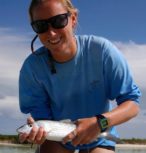DNA reveals the past and future of coral reefs
New DNA techniques are being used to understand how coral reacted to the end of the last ice age in order to better predict how they will cope with current changes to the climate. James Cook Univer

From 2005 to 2022, the main node of the ARC Centre of Excellence for Coral Reef Studies was headquartered at James Cook University in Townsville, Queensland (Australia)








Abstract. My research investigates the mechanisms responsible for maintaining aerobic performance in different types of coral reef fishes under predicted future CO2 levels in the ocean. If a variety of fishes (i.e., different types of swimmers from diverse habitats) use distinct mechanisms to respond to elevated pCO2 and ocean acidification conditions, there is the potential for changes in relative performance of populations, leading to altered fish communities. This research broadens our understanding of how physiological mechanisms used during exposure to elevated pCO2 will affect fish communities and coral reefs during future ocean acidification.
Biography. Kelly Hannan is a PhD student at the ARC Centre of Excellence for Coral Reef Studies. She completed her BSc at Villanova University in Comprehensive Science and Biology (2011), followed by various jobs on islands in The Bahamas performing research or teaching marine biology courses. While working on a field station she met her MSc advisor, A/Prof. Cory Suski. She joined his lab at the University of Illinois where she earned a degree in Natural Resources and Environmental Sciences, examining the physiological effects of carbon dioxide on freshwater mussels. Currently, Kelly is working on her PhD, supervised by A/Prof. Jodie Rummer and Prof. Phil Munday.
New DNA techniques are being used to understand how coral reacted to the end of the last ice age in order to better predict how they will cope with current changes to the climate. James Cook Univer
A new study on the effects of climate change in five tropical countries has found fisheries are in more trouble than agriculture, and poor people are in the most danger. Distinguished Profess
James Cook University researchers have found brightly coloured fish are becoming increasingly rare as coral declines, with the phenomenon likely to get worse in the future. Christopher Hemingson, a
Researchers working with stakeholders in the Great Barrier Reef region have come up with ideas on how groups responsible for looking after the reef can operate more effectively when the next bleaching
Abstract: As marine species adapt to climate change, their heat tolerance will likely be under strong selection. Individual variation in heat tolerance and its heritability underpin the potential fo
Abstract: The Reef Ecology Lab in KAUST’s Red Sea Research Center explores many aspects of movement ecology of marine organisms, ranging from adult migrations to intergenerational larval dispersal
Abstract: Macroalgal meadows are a prominent, yet often maligned component of the tropical seascape. Our work at Ningaloo reef in WA demonstrate that canopy forming macroalgae provide habitat for ad
Abstract: Sharks are generally perceived as strong and fearsome animals. With fossils dating back at least 420 million years, sharks are not only majestic top predators but they also outlived dinosa
Abstract: Connectivity plays a vital role in many ecosystems through its effects on fundamental ecological and evolutionary processes. Its consequences for populations and metapopulations have been
Abstract: Evolution of many eukaryotic organisms is affected by interactions with microbes. Microbial symbioses can ultimately reflect host’s diet, habitat range, and even body shape. However, how
Abstract: The past few years have seen unprecedented coral bleaching and mortality on the Great Barrier Reef (GBR) but the consequences of this on biodiversity are not yet known. This talk will expl